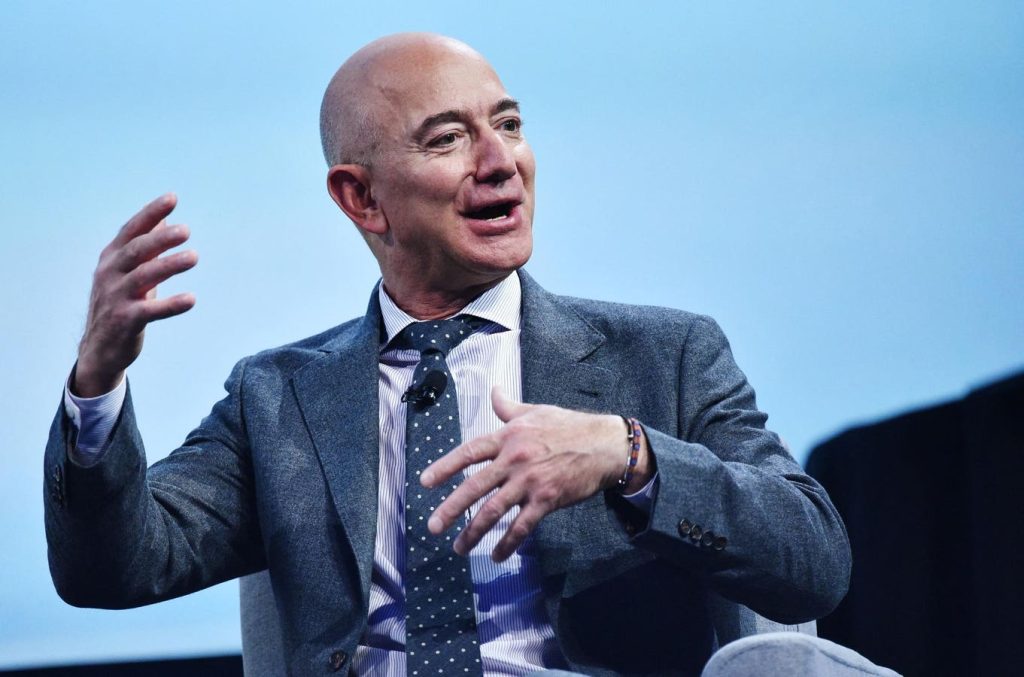Jeff Bezos’s Billion-Dollar Tax Savings: A Florida Residency and a Windfall for the World’s Second-Richest Man
Jeff Bezos, the founder and chairman of Amazon, orchestrated a strategic relocation from Washington state to Florida in late 2023, a move shrouded in sentimental pronouncements but underpinned by significant financial implications. Publicly, Bezos cited a desire to be closer to his parents, who had recently returned to Miami, and the increasing presence of his space exploration company, Blue Origin, at Cape Canaveral. However, the unspoken motivator was a substantial reduction in his tax burden, a move that saved him an estimated $1 billion in 2024 alone.
This financial maneuvering began with a two-year hiatus in Bezos’s stock sales, coinciding with the implementation of a 7% capital gains tax in Washington state in January 2022. This tax targeted long-term gains exceeding $250,000, directly impacting Bezos’s substantial Amazon holdings. His subsequent actions clearly signaled an impending move to Florida: he acquired three opulent mansions on Indian Creek, a haven for billionaires, registered to vote in the state, and filed a declaration of domicile, crucial steps in establishing Florida residency. This strategic relocation effectively shielded him from Washington’s capital gains tax, as Florida boasts no income, capital gains, or estate taxes. Legal experts like Edward Renn, a tax lawyer at Withers, noted the meticulous nature of Bezos’s transition, making it difficult for Washington state to claim further tax revenue.
Just weeks after the U.S. Supreme Court upheld the Washington state capital gains tax, effectively closing any legal loopholes, Bezos resumed selling Amazon stock. He liquidated $8.5 billion worth of shares in February 2024 and followed up with another $5.1 billion in subsequent sales, marking the highest dollar amount of Amazon shares he had ever sold in a single year. While these sales were likely driven by a need to diversify his $245 billion fortune, heavily concentrated in Amazon stock, they also served to fund his lavish lifestyle, including extensive real estate acquisitions, the construction of his superyacht, and investments in Blue Origin and various startups.
Had Bezos remained a Washington resident, these stock sales would have incurred a $954 million capital gains tax bill, a sum exceeding the state’s total capital gains tax revenue for the entire previous fiscal year. This significant loss of revenue directly impacts Washington state’s funding for essential social programs like childcare, education, and school construction. While Bezos likely owes substantial federal taxes on these transactions – estimated at $3.2 billion – the avoidance of state taxes represents a massive financial advantage.
Although seemingly airtight, Bezos’s residency change remains potentially vulnerable to challenges from Washington state authorities. They could scrutinize details of his move, seeking evidence of continued ties to Washington, such as property ownership or medical affiliations. Bezos retains ownership of several Washington homes, potentially complicating his clean break from the state’s tax jurisdiction. While a representative for Bezos declined to comment and the Washington Department of Revenue cited confidentiality laws, the possibility of further tax disputes remains.
Bezos’s relocation exemplifies a broader trend among the ultra-wealthy seeking tax-friendly havens. Florida and Texas, with their zero income, capital gains, and estate taxes, have become magnets for billionaires. Over the past two decades, the number of Forbes 400 members residing in Florida has more than doubled, with prominent figures like David Tepper, Ken Griffin, and Tom Golisano joining the exodus. While personal ties often play a role in these moves, the allure of lower taxes is undeniable.
Beyond relocation, the ultra-wealthy utilize a range of tax minimization strategies. These include leveraging charitable donations for deductions, taking compensation in company stock to defer income tax, and borrowing against assets instead of selling them to avoid triggering capital gains. Bezos himself has a history of minimizing his tax burden, paying no income tax in certain years and maintaining an exceptionally low effective tax rate, according to leaked tax filings.
Despite their focus on minimizing tax payments, many billionaires, including Bezos, actively engage with the federal government, seeking favorable regulations and lucrative government contracts for their businesses. Bezos’s interactions with former President Trump, including a reported meeting, underscore the complex interplay between wealth, power, and political influence. While seeking to reduce their personal tax contributions, these billionaires simultaneously cultivate relationships with those who control the levers of power, highlighting the multifaceted dynamics at play.








